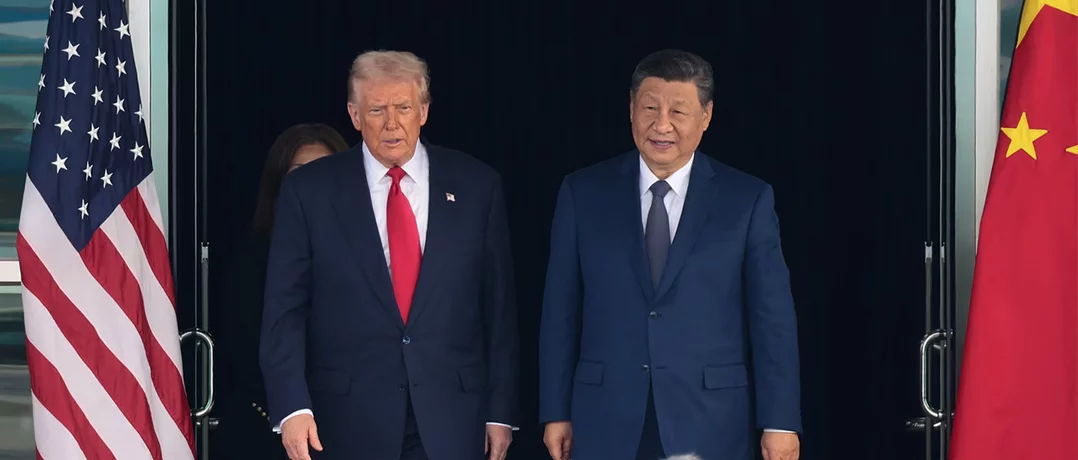Trump and Xi’s long-awaited meeting in South Korea restored dialogue and trade relief but sparked criticism over U.S. concessions to China.
The Trump-Xi summit ushers a new détente

The long-anticipated meeting between the world’s economic giants has finally been held. Unlike the Trump-Putin summit in Bucharest, which failed to materialize, the United States President Donald Trump and his Chinese counterpart Xi Jinping met one another on the sidelines in South Korea.
The two leaders’ discussions remined many observers of a past phase witnessed during the Cold War: détente. However, some have been skeptical regarding Trump’s alleged concessions which permitted Xi to emerge as a “peer rival” with the US.
What have the two leaders agreed on?
On October 30, 2025, Trump and Xi shook hands and sat down with one another for nearly 2 hours to discuss crucial trade matters. It marked the first time the two met in-person since a break of 6 years.
Coming out of their meeting, Washington shaved 10% of the imposed 57% tariffs on Chinese goods, while Beijing issued persistent commitment to crackdown on illicit fentanyl reaching US land. This had direct positive impacts on US interests and its civilian population’s livelihoods. The trimming of tariffs has resumed US soybean purchases and kept Rare Earth Elements (REEs) exports flowing (as Beijing will pause latest rare earth export curbs for a year), thus alleviate the painful trade war on both American farmers and industries respectively.
Since Trump assumed office, a devastating trade war has emerged with China. The had imposed detrimental tariffs on Beijing with the aim to achieve 4 key outcomes: a reduction in fentanyl smuggling into the US, a return of manufacturing to the country, restoration of the balance of trade and a sale of TikTok’s US assets. Although considerable progress have been made in all contentious issues, the latest meeting was seen as a notable benefit for China, amidst controversial US concessions.
Perceived Chinese elevated position
The US, especially under the Trump administration, has long boasted its superiority and capabilities, while undermining both China’s position and abilities vis-à-vis Washington. However, this year’s developments, including the latest meeting, suggest otherwise.
Beijing has on nearly 3 occasions capitulated US “liberation day” tariffs imposed in April 2025, hindering Washington’s capacity of enforcing its proposed tariffs efficiently as it was forced to back down on every occasion. This is true during the increase of reciprocal tariffs to 145% as well as the semiconductors export control. Beijing’s economic weight as well as its near monopoly of REEs production and supply has caused the Trump administration to retreat, amidst serious threats to both its industrial and farming sectors.
In the recent discussions, Washington has backed down once more by scrapping 10% from the initial imposed tariffs on China. From here, many have criticized the American concessions, which advances Beijing’s position and influence, both politically and economically.



